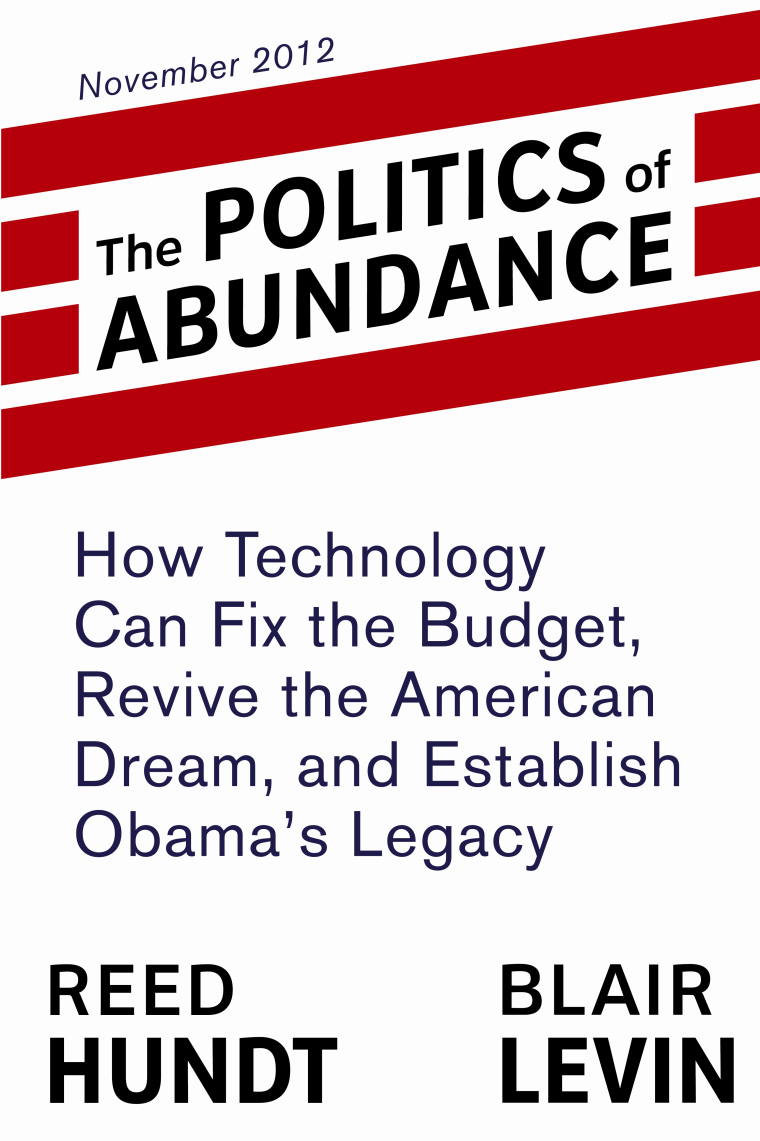We are still on the edge of the Fiscal Cliff but today in the Guest Spot Reed Hundt, author of The Politics of Abundance: How Technology Can Fix the Budget, Revive the American Dream and Establish Obama's Legacy, will elucidate how the rapid pace of technological change offers faster, cheaper and lasting solutions for America's most severe problems (i.e. education, health care, energy). Hundt, along with the book's co-author Blair Levin are the experts who ran the Federal Communications Commission from 1993-1997, the era of the first mobile phones and something called the "internet".
From the successes and failures from the 90's tech explosion Hundt and Levin say President Obama has the opportunity to harness technology's full potential for the benefit of America's future culture, social and economic successes, all we need is proper execution of executive power.
Be sure to tune in at 3:30 p.m. for the full conversation and check out an excerpt from his book below.
EXCERPT FROM THE POLITICS OF ABUNDANCE:
Some will tell the President that the government should never have a growth strategy beyond being fiscally prudent and letting markets allocate capital. But a government that can land a thinking machine on Mars surely can develop an informed opinion about what sectors of the economy can grow rapidly and contribute to a high and rising standard of living for everyone. In any event, currently the knowledge and power markets cannot readily allocate capital appropriately because they are constricted by a web of law, externalities, and monopoly bottlenecks. Moreover, the government plays such a large role as a spender and regulator in these markets, that its conduct, whether or not coherently focused, enormously affects industry trends. Finally, if the United States economy does not rebuild the knowledge and power platform far faster, better, and cheaper than market forces are now doing, then Americans will suffer from inadequate educations, poor and expensive healthcare, and devastating climate change, for generations to come.
However, those who remain unconvinced of the merits of a growth strategy, and prefer single-minded focus on the debt-to-GDP ratio, should be mollified by the fact that our legislative proposals for the two platforms reduce the deficit by about $100 billion, without accounting for the additional tax revenues that will be derived from more rapid economic growth. In Chapter 4, we suggest ways to negotiate for these measures as part of avoiding the “fiscal cliff.” Taken as a whole, our proposals outline the politics of abundance.
